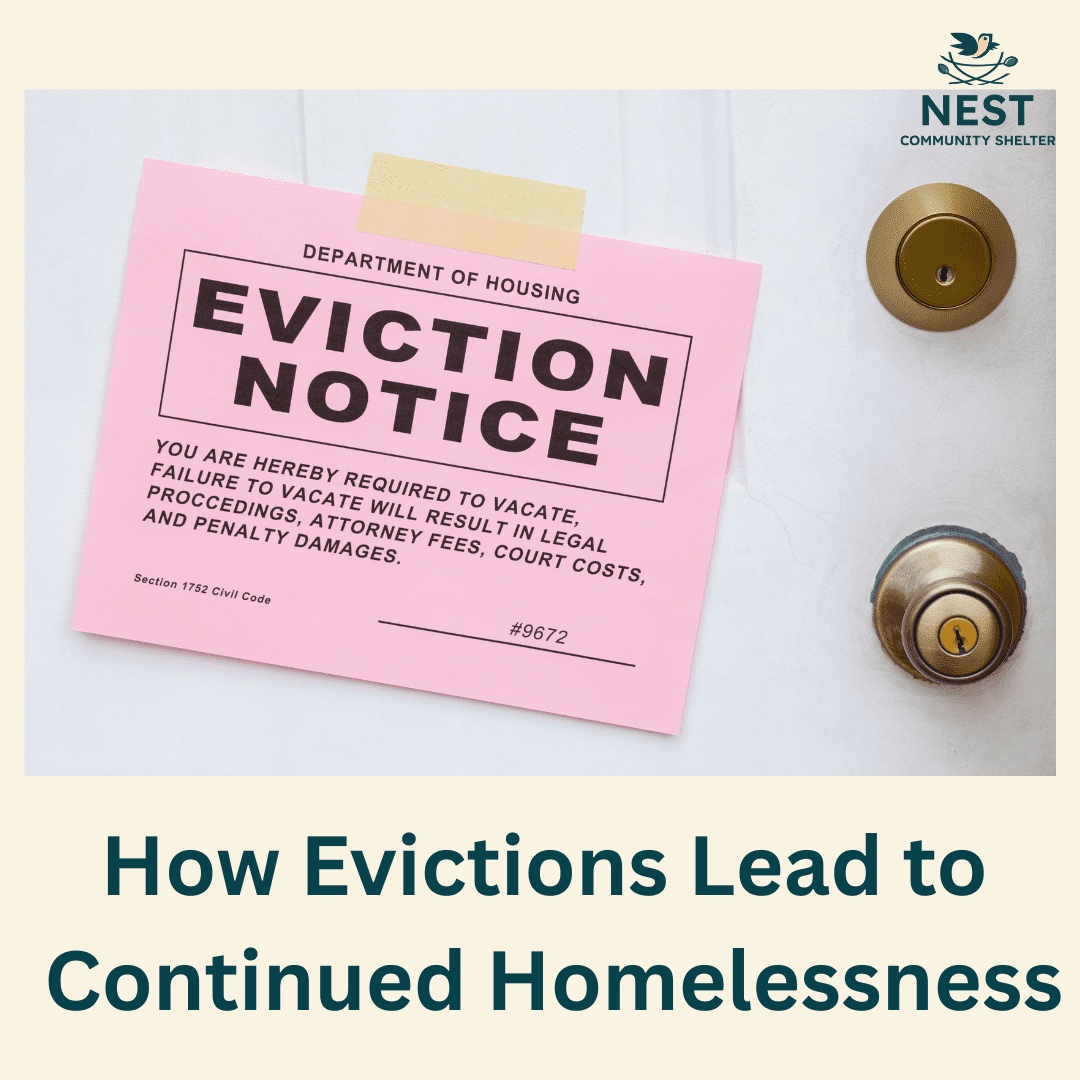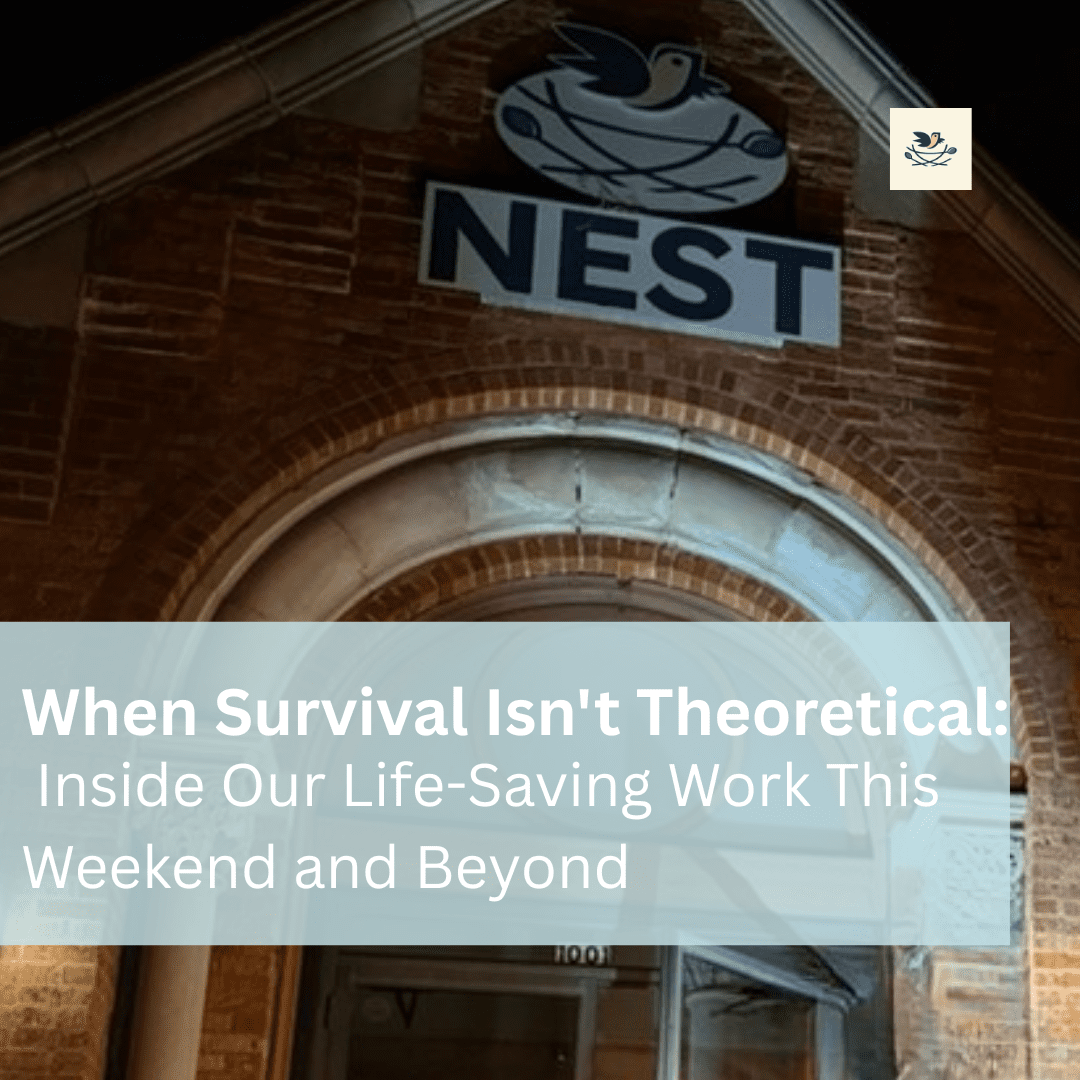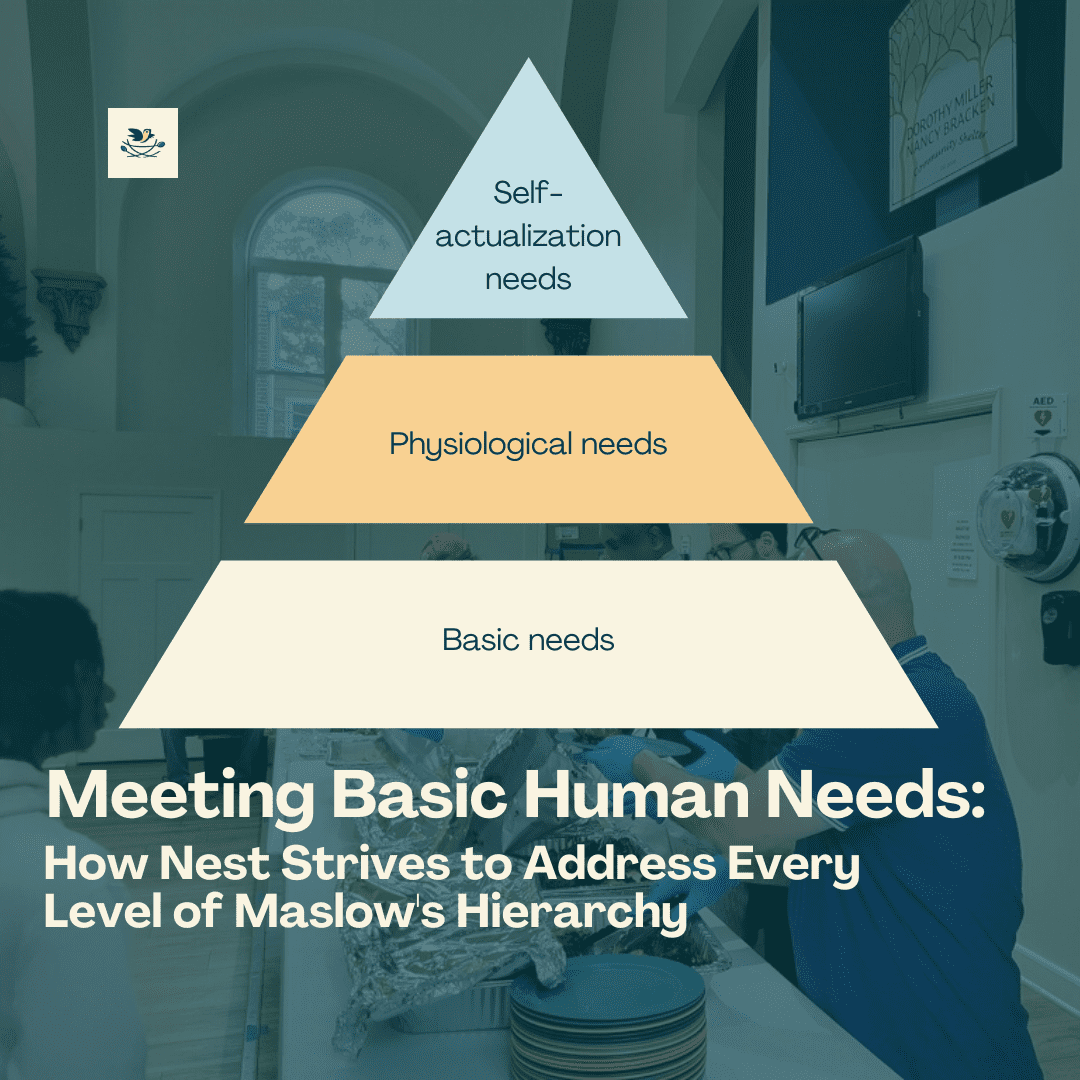
As we continue our month-long series on the unhoused and barriers to housing, we want to look at evictions. When our guests reach a point where they’re ready to move into their own housing, it is a happy day. They have jobs, a budget, references in hand, and the first month’s rent and deposits saved. They’re doing everything right. But there’s one line on the rental application that can stop them cold: “Have you ever been evicted?”
A Single Checkbox That Changes Everything
An eviction isn’t just a moment in time; it can be a permanent mark that follows people for years, sometimes decades. While a criminal record can be sealed or expunged in many states, eviction records remain publicly searchable indefinitely. For the millions of Americans with an eviction on their record, finding stable housing becomes an uphill battle that can feel impossible to win. This past year, the state of Indiana passed a law that will seal an eviction record, but only for some people under the right circumstances.
We’ve watched capable, determined individuals apply to dozens of rental properties only to face rejection after rejection. The reason is almost always the same: that eviction from five years ago, from ten years ago, sometimes from a lifetime ago, when circumstances were entirely different, is a serious roadblock to housing.
The Domino Effect of Housing Denial
When an unhoused individual can’t find housing because of a previous eviction, the consequences ripple outward:
Families remain separated. Parents can’t reunite with their children who are staying with relatives or in foster care because they don’t have stable housing to offer.
Employment becomes unstable. Without a permanent address, it’s harder to maintain steady work. Job applications ask for addresses. Employers want reliability. It isn’t easy to show up consistently when you’re sleeping in different places or commuting from a shelter far from your workplace.
The cycle continues. People are forced into substandard housing with landlords who don’t conduct background checks, often paying premium prices for properties with serious safety issues, no lease protections, and the constant threat of eviction, thus repeating this vicious cycle.
Homelessness persists. For many, the shelter becomes the only option, not because they lack resources or motivation, but because the housing market has deemed them unworthy of a second chance. Not taking into account how the eviction may have come about.
No Room for Understanding
The eviction screening system doesn’t distinguish between someone who was evicted for chronic non-payment and someone who faced a one-time crisis, a medical emergency, a layoff, or a domestic violence situation. It doesn’t account for the passage of time or evidence of rehabilitation. It treats everyone with an eviction the same way: as an unacceptable risk.
Many of the people we serve were evicted during circumstances beyond their control:
- Medical debt that led to missed rent payments
- Domestic violence situations where they had to leave quickly
- Pandemic-related job losses
- Landlord retaliation for requesting necessary repairs
- Misunderstandings or errors in housing court
Yet these individuals are branded with a scarlet letter that makes landlords, often referred to as the “Scarlet E,” who are often using automated screening tools, reject them before ever meeting them or hearing their story.
Not Your Local Landlord
The consolidation of rental properties into corporate ownership has made this crisis even worse, and it is happening even here in La Porte County.
Large property management companies and corporate landlords now own a significant portion of the “affordable” rental stock in many communities, the very properties that people leaving our shelter could potentially afford. These corporations rely on automated screening software that instantly rejects anyone with an eviction on their record, with no room for human judgment or individual circumstances. There’s no property manager you can sit down with to explain what happened, no local landlord who might remember your family or give you a chance based on a personal reference. It’s simply an algorithm that sees one mark on your record and closes the door.
Meanwhile, independent landlords, the ones who might have been willing to hear your story, accept a co-signer, or give someone a second chance, are increasingly rare. They’ve sold their properties to corporate buyers or been priced out of the market themselves. This shift from individual to corporate ownership has removed the human element from housing decisions at precisely the time when vulnerable people need that humanity most. When the majority of affordable rentals in a community are owned by corporations that treat housing as purely a numbers game, entire populations find themselves permanently locked out, no matter how hard they work to rebuild their lives.
Moving Forward with Compassion
Housing is a fundamental human need, not a privilege reserved for those with perfect records. When we lock people out of housing because of past evictions, we’re not protecting our communities; we’re perpetuating cycles of poverty and homelessness that hurt everyone. For those who’ve worked so hard to rebuild their lives only to be shut out of stable, safe housing, it’s heartbreaking.
Our guests aren’t looking for handouts. They’re looking for a fair shot. They’re ready to pay rent, maintain properties, and be good neighbors. They need someone willing to see past a checkbox and recognize their humanity.
It’s time we acknowledge that our current system isn’t working and commit to creating pathways back to stable housing for everyone, regardless of their past, because everyone deserves a place to call home.




